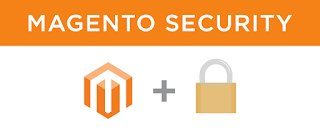Ecommerce
security is one of the most important topics being discussed by
programmers and business owners alike. Now as a business, you would
definitely want your ecommerce website to be as secure and integrated
as possible. But what is the modus operandi that you would adopt to
make it happen? This question assumes all the more importance given
the fact that cyber warfare and threats are increasing in their
complexity and efficacy almost every day.
A
great example of this is the latest security vulnerability of
ecommerce websites that is being exploited by all and sundry, the
‘Poodle’. This is an SSL3 vulnerability that only requires you to
disable SSL3 both on the client side and the server side. So, what is
the way out?
- Ensure SSL and PCI certification
If
you’re a business owner, make sure that the solution that your
service provider gives you has SSL encryption. The SSL (Secure
sockets layer) encryption is a must if you want to ensure a secure
communication channel between client and server.
If
it’s a payment portal or gateway, then a PCI-DSS (Payment card
industry data security standard) certification is a must. Trusted
solution providers will generally only provide solutions that are
PCI-DSS certified as they know users won’t even look at making
payments otherwise.
- Store only the customer data required
Most
payment websites today offer what is called the Storecard feature
where the website’s database stores the customer’s card details,
wanting the customer to enter nothing other than his CVV and
password. But this also has a vulnerable side to it. You may end up
storing details of customers who visited your portal ages ago making
your site heavy and vulnerable to attacks.
This
is why you must regularly purge your website of customer data that
you no longer need. Store only a small amount of customer records,
just the data you need to process the funds.
- Be updated about the latest security patches
The
Security requirements of every web application change continuously.
When new threats and vulnerabilities emerge, it also spawns newer and
better responses in the form of security patches. This includes
everything from Wordpress to Magento updates to PHP to SSL patches.
Be
on the lookout for any security updates that come up from any or
every corner. You never know who or what could strike you next.


Hi this is such a nice blog and I hope u will provide more detail about Ecommerce web design company
ReplyDelete